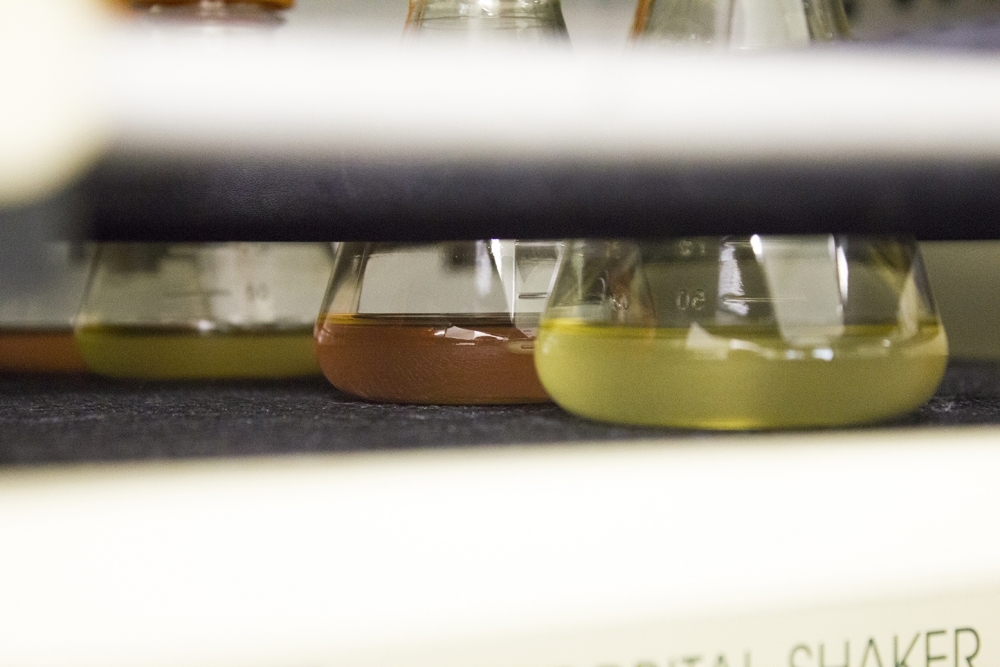

To develop a drug capable of treating the disease caused by the novel coronavirus, a research institution in São Paulo will deploy a platform used to produce monoclonal antibodies against tetanus and zika (photo: cultivation of clones / Instituto Butantan)
To develop a drug capable of treating the disease caused by the novel coronavirus, a research institution in São Paulo will deploy a platform used to produce monoclonal antibodies against tetanus and zika.
To develop a drug capable of treating the disease caused by the novel coronavirus, a research institution in São Paulo will deploy a platform used to produce monoclonal antibodies against tetanus and zika.

To develop a drug capable of treating the disease caused by the novel coronavirus, a research institution in São Paulo will deploy a platform used to produce monoclonal antibodies against tetanus and zika (photo: cultivation of clones / Instituto Butantan)
By André Julião | Agência FAPESP – A group of researchers at Butantan Institute in São Paulo, Brazil, are working on the development of a product made of antibodies to combat the novel coronavirus SARS-CoV-2. Neutralizing monoclonal antibodies will be extracted from defense cells (B cells) in blood samples donated by people who have recovered from COVID-19, with the aim of finding one or more of these proteins with the capacity to bind to the virus efficiently enough to neutralize it. The most promising molecules may then be produced on a large scale for use in treating the disease.
The project is supported by FAPESP, and the principal investigator is Ana Maria Moro. It uses a platform created to develop human monoclonal antibodies (mAbs) for different diseases. The platform is at an advanced stage in the process of obtaining mAbs for the treatment of zika and tetanus.
“Development of the platform began in 2012. We started with human mAbs against tetanus with support from FAPESP, identifying a combination of three antibodies that neutralize tetanospasmin, the tetanus toxin. We then established an agreement with Michel Nussenzweig at Rockefeller University in the United States to grow cell lines producing mAbs against zika that his lab identified during the 2015 zika epidemic. They’re two neutralizing mAbs that can be used to protect pregnant women in the event of another zika outbreak. It’s a long process but we’re starting it now with the coronavirus,” Moro told Agência FAPESP.
The researchers are using a technique similar to passive immunity transfer, which involves the transfusion of blood plasma from people who have recovered from COVID-19 and is also under development in Brazil (read more at: agencia.fapesp.br/32999/).
Plasma is the liquid portion of blood that remains after red and white blood cells, platelets and other cellular components are removed. Plasma donated by people who have recovered from COVID-19 is naturally rich in antibodies against the disease. When they enter the bloodstream of a person with the disease, they immediately begin combating the virus, although exactly which antibodies are doing this is so far unknown.
Moreover, donors may have different amounts of neutralizing antibodies, which not only recognize but also eliminate the virus. Widespread deployment of passive immunization would require constant donations to maintain stocks of plasma for this purpose.
“In the case of monoclonal antibodies, a liquid containing one or more antibodies selected among the most efficient is produced on a large scale by the recombinant technique using cell culture vessels we call bioreactors,” Moro said.
Over 70 biopharmaceuticals based on monoclonal antibodies are currently approved for clinical use worldwide. Most were developed to treat cancer and autoimmune diseases, as well as several more recently to combat ebola. Hundreds of products are at different stages of clinical trials.
Recruitment of convalescents
The first part of the project entails the recruitment of volunteer COVID-19 convalescents in partnership with the University of São Paulo (USP), where Moro is a faculty member, and RedeVírus MCTIC, a network of scientists and laboratories run by the Brazilian Ministry of Science, Technology, Innovation and Communications. The researchers will subject blood samples from the volunteers to a number of molecular biology processes in pursuit of B lymphocyte gene sequences that express neutralizing antibodies.
The action of each antibody on the virus will then be characterized. This will include binding capacity, specificity, affinity, cross-reactivity with other antibodies, and neutralization capacity.
Between one and three antibodies found to be most efficient by these criteria will then be tested in animals. In the case of zika virus, only one antibody was selected for its neutralizing capacity. When tested in animals, on its own it was not able to suppress the viral escape mechanism. A second antibody was added, and the combination proved effective. In the case of tetanus, three antibodies were selected for use against the toxin that causes the disease.
Following gene identification, the next step consists of transfecting into cells the genes that express the most promising antibodies and growing permanent recombinant cell lines. This process entails the production of clones, which are isolated and characterized as to cellular properties (growth, viability and productivity) and the properties of the antibodies expressed (binding, affinity and neutralization capacity).
The results are taken into consideration for the purpose of selecting the best clones, which can be mass-produced in bioreactors and subjected to pre-clinical and clinical trials.
Republish
The Agency FAPESP licenses news via Creative Commons (CC-BY-NC-ND) so that they can be republished free of charge and in a simple way by other digital or printed vehicles. Agência FAPESP must be credited as the source of the content being republished and the name of the reporter (if any) must be attributed. Using the HMTL button below allows compliance with these rules, detailed in Digital Republishing Policy FAPESP.





